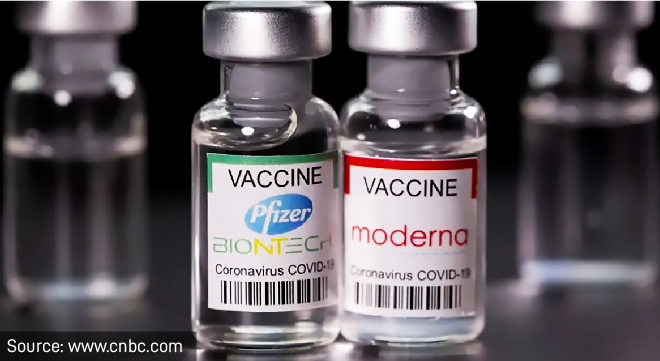Vaccination is less effective at preventing contracting the Omicron variant, compared with previous variants of Covid-19, but still provides excellent protection against severe illness and death, particularly if one has a booster shot.
This was said by Dr Ronald Whelan, the chief commercial officer of Discovery Health and the head of the company’s Covid-19 Task Team, during a presentation at a recent InsureTalk webinar.
He also said Discovery was seeing notable incidence of “long Covid” among its clients who recovered from the virus.
Data from Discovery Health showed that two doses of the Pfizer vaccine remained 60% to 70% effective against severe illness and death during the Omicron wave. The effectiveness rate increased to 88% to 90% if supplemented by the booster shot.
However, vaccination has become less effective against infection: falling from being 80% effective before the Omicron variant to 33%.
Dr Whelan said the important take-away was that vaccination – particularly when enhanced with a booster shot – continues to provide a high level of protection against landing up in intensive care or on a ventilator.
He shared the findings of Discovery’s most recent research into the effectiveness of the Pfizer and Johnson & Johnson vaccines against the Omicron BA.4 and BA.5 variants in Gauteng in March and April. These two variants are currently responsible for about 90% of infections in South Africa.
The study showed that three Pfizer doses (two doses plus a booster) were between 74% (in March) and 90% (in April) effective in protecting against the most transmissible variants of Covid. Two doses of the J&J vaccine were 72% effective in protecting against infection in April.
Dr Whelan said the research indicated that the vaccines were “excellent”, and the booster shots were working.
Benefits of exercise
Discovery has also found that members who exercise – particularly those with a higher Vitality status – are significantly less at risk of a severe Covid outcome.
“High engagers”, those who do 149 minutes of moderate intensity exercise a week, are 34% less likely to be admitted to hospital with Covid, 41% less at risk of being admitted to ICU, 45% less likely to be put on a ventilator, and 42% less likely to die from Covid.
Lingering side-effects
Covid affects many parts of the body – the brain, lungs, immune system and circulatory system – and Discovery members were reporting difficulties with communicating, concentrating, walking, hearing and seeing post-infection, Dr Whelan said.
These incidents were relatively high, with 31% of Discovery members saying they have persistent headaches up to 18 months after infection, 14% have problems sleeping, 11% experience shortness of breath, 8% have heart palpitations, and 7% experience weakness in their arms or legs, or general muscle weakness.
He said this was a “significant concern” for Discovery, which is why it has established a Covid recovery programme for its members.
Discovery data also showed that people who have had Covid were more at risk of being admitted to hospital compared with the general population. The risk was 2.4 times higher one month after recovering from Covid and 1.4 times higher two to 12 months after recovery.
However, the data to date does not show that people who have had Covid have a higher mortality risk compared to those who were not infected.
Dr Wheelan said it was too soon to declare “victory” in the battle against Covid, although there were “promising signs” of recovery.
The decline in the number of reported infections in May indicates that South Africa might be over the peak of the fifth wave (Omicron BA.4 and BA.5).
There have been relatively few in-hospital deaths in the fifth wave compared to the preceding four waves – particularly the first three, Dr Whelan said.




“Covid affects many parts of the body – the brain, lungs, immune system and circulatory system”
Covid or the “vaccine”??